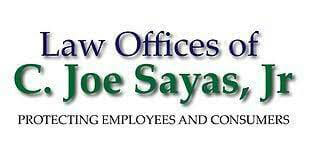Can you be fired for political posts on social media?

Q: I saw your article about employee protections for political activities like attending rallies. What about posting political messages on Facebook or other social media sites? Can my employer legally fire me for postings like these? Do they have the right to ask me to take my posts down? What are my rights when it comes to expressing my political beliefs in the internet?
A: Dealing with employees’ political expression in social media platforms can be tricky. For employees who use social media and regularly post political content in them, here are a few things to remember:
The First Amendment to the United States Constitution prohibits the government from abridging freedom of speech – a limitation against government incursions into a person’s right to political speech. However, the First Amendment does not apply to non-governmental actors such as private employers. In certain instances, your employer may have some say in what you can and cannot say, in what platform, and which time.
Having said that, there are legal protections for employees. An employer’s right to discipline or fire employees for the latter’s posting online is limited in the following situations:
- Expressions of political beliefs. As we discussed in this column last week, employers cannot control the political activities or affiliations of its employees. Employers cannot enforce a policy that forbids employees from participating in political acts. Employers cannot force or influence employees to follow any particular course of political action by threatening employees of termination. California employees cannot be fired for engaging in political activities, including expressing their political views online.
- Conduct during non-working hours. As we said last week, an employer is prohibited under California’s Labor Code from engaging in any adverse action towards an employee, such as demotion or termination, if the employee engaged in “lawful conduct” during non-working hours and away from the workplace. This means an employee who posts messages online outside of work hours may be protected from discipline. There are exceptions to this law, however. Even if they are doing the posts while off work, employees may still not post information pertaining to company trade secrets or finances, confidential client or customer information, or posts that are homophobic, racist, sexist or discriminatory.
- Activities that may or may not be union-related. The National Labor Relations Act protects the rights of employees to communicate with one another about terms and conditions of their employment, whether the workplace has a union or not. Therefore, if a group of employees post criticisms about their working conditions or the fact that they are not paid correctly, this might be considered protected activity, for which the employees may not be disciplined or fired. However, the law generally may not protect employees whose posts are damaging to the business or which encourage insubordination.
- Whistleblowing activities. California’s Whistleblower Protection Act prohibits employers from retaliating against an employee for making a ‘protected disclosure’ as provided by law. This means an employer must not retaliate against an employee for providing information to a government or law enforcement agency, where the employee reasonably believes that a violation of law has occurred. It also protects employees who complain within a company about unlawful practices, where the employee truly believed the conduct they complained about was unlawful, even if it was not. “Protected disclosure” may include matters involving unpaid wages, discrimination, harassment, unsafe working conditions, or other unlawful acts at work. If an employee is fired for posting online about these issues, the firing may be illegal retaliation.
Social media has drastically changed how people engage in political discourse. Some may see this as a gift, others a curse. But for those who believe in the value of speaking up, and who do speak up, they can rest assured that there are laws that protect them.
The Law Offices of C. Joe Sayas, Jr. welcomes inquiries about this topic. All inquiries are confidential and at no-cost. You can contact the office at (818) 291-0088 or visit www.joesayaslaw.com. [For more than 25 years, C. Joe Sayas, Jr., Esq. successfully recovered wages and other monetary damages for thousands of employees and consumers. He was named Top Labor & Employment Attorney in California by the Daily Journal, consistently selected as Super Lawyerby the Los Angeles Magazine, and is a past Presidential Awardee for Outstanding Filipino Overseas.]

